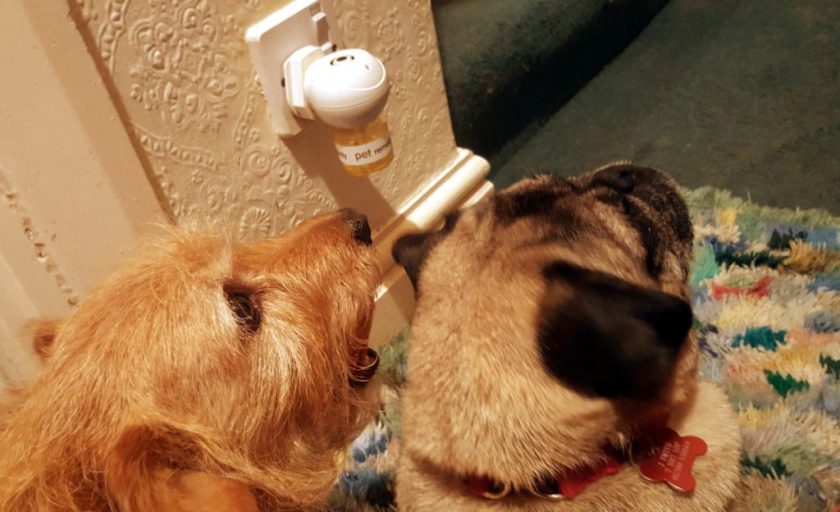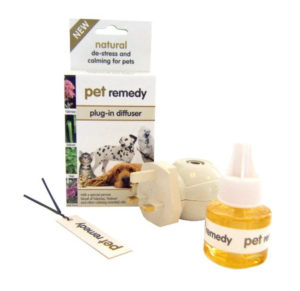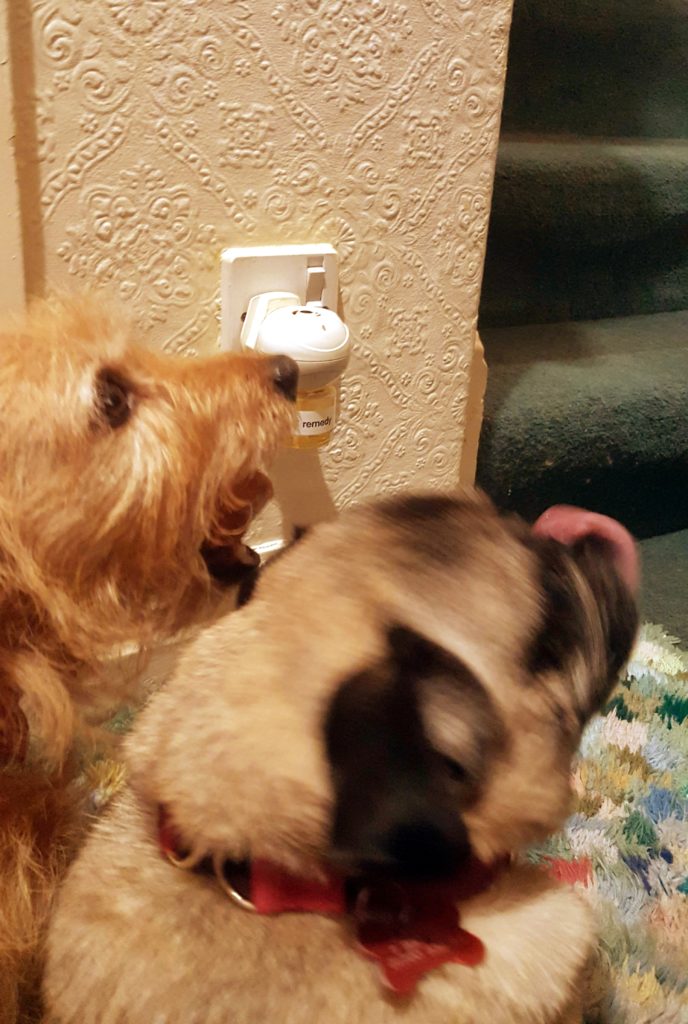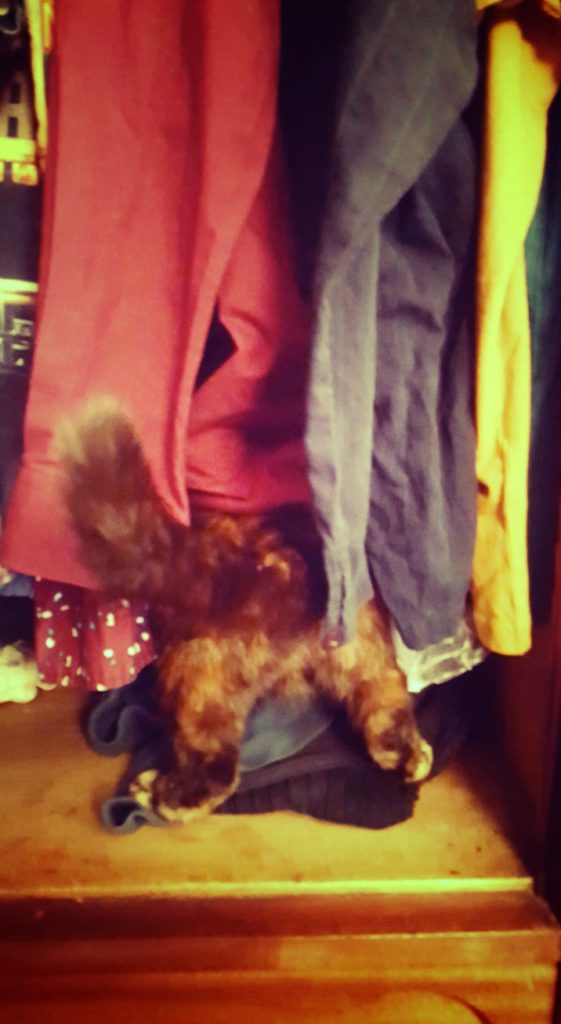 Do you get stressed? Well, so do your pets – but they communicate it differently. Unlike humans who shop, over eat, drink too much and shout at people when they or stressed (just me then?) dogs and cats have a very different language.
Do you get stressed? Well, so do your pets – but they communicate it differently. Unlike humans who shop, over eat, drink too much and shout at people when they or stressed (just me then?) dogs and cats have a very different language.
It’s especially important over the Halloween to new-years party period that we keep an eye out for the signs and symptoms of stress and provide support and treatment for out companion animals.
Featured product
We love Pet Remedy’s natural de-stressing & calming sprays, plugins and wipes. They are scientifically proven to work, with studies undertaken ethically, in animal sanctuaries and homes. They are also natural, a unique combination of of Valerian essential oil, blended with Vetivert, Basil Sweet & Sage and many other herbs. They relax, rather than sedate your pet.
View the pet remedy range here.
Signs of stress in dogs
- Panting
- Shaking / trembling
- Pacing
- Clingyness
- Barking
- Cowering
- Hiding
- Tail between legs
- Salivation (severe cases)
- House soiling (severe cases)
Signs of fear / stress in cats
- Ears flat and down
- Dilated Pupils
- Cowering / crouching
- Hiding
- Trying to escape
- Going off their food
- Over washing themselves
- Aggression
- House soiling
How to prepare for known problems
If you KNOW your dog hates fireworks, of if you have a new dog, then it’s vital to prepare for events like bonfire night and new years eve.
We live right next to Clitheroe castle, where there is a huge half-hour firework display every year – so we have to prepare weeks in advance every year. This is what we do.

4-8 weeks before
- Dogs: Make a den for your dogs somewhere in the centre of your home, as far away from “outside” as you can. The cupboard over or under the stars or a hallway/landing are ideal.

- Cats: prepare their favourite hide away, or if they don’t already have one, then choose two – one high up (top of a wardrobe) one low down (under a bed).
- Dogs: Then add a dog house/crate or low table for them to hide under.
- Cats: use a cardboard box or cat house – but make sure it has two entrance holes not just one.
- Both: Over several months reinforce this as a nice place to be, with treats, toys and fuss. Ideally allow access at all times or take your dog there several times a day.
- Both: Start using Pet Remedy (or similar) spray and/or plug in at least 4 weeks before, more if possible.
- Cats: If your cat does not use a litter tray, consider providing one as cats should be kept inside at firework time.
The week before
- Dogs: Ideally, start walking your dog in the morning and if they need a second walk, then as early as possible. This will help avoid early fireworks as much as possible.
- Dogs: Start using Pet Remedy wipes on their face and chest so they can get used to the process.
- Cats: Keep them indoors as much as possible, the odd stray firework can cause a lot of fear for cats and they might run off.
On the night
- Dog: Take your dog to it’s den area before dark.
- Cat: make sure your cat has easy access to both it’s hide away’s
- Both: Close all the curtains/windows and doors in the house – this will dampen the sound a lot.
- Both: Put on the radio or TV this will mask the sound later – we find classic FM seems to do a very good job at masking firework noise.
- Both: You could also try a static simulator, which can also be very effective at masking sound (there are smartphone apps).
- Both: Use pet remedy wipes around the face and chest of your pet if possible
What NOT to do
- Don’t be weird. Be cool – if your behaviour changes, this can confuse and upset your pet.
- If your dog/cay is hiding under a bed or table, don’t coax them out- just leave them be.
- Don’t over fuss your pet during times of stress, it can cause additional excitement. If they come to you and sit on your knee or next to you, just give them little pats or put your arm round them, rather than the whole cuddle whole shebang.
 Long term treatment
Long term treatment
For animals with severe and persistent difficulties, you should see a vet and/or behaviourist. There are lots of options such as desensitisation training, medication and counter conditioning.

Thanks to Andrew Fullerton and Pet Product Marketing Magazine for the helpful info.



Found the advice very helpful, have a jack russel entering late age and she is shocked easily when fireworks happen. We do have a den for her with a blanket over it giving her sense of extra security.
The radio sounds like a good idea but I’ve been told that it can also strain the ears of a dog, is there any truth to this?
Hi, I’ve not heard that, but presumably one night a year won’t make any difference? Also, I suppose lots of people listen to the radio or tv loud from time to time anyway so it’s not an unusual risk above day to day things 🙂
Glad it was a helpful post, sorry for slow reply WordPress didn’t notify about the comment :/